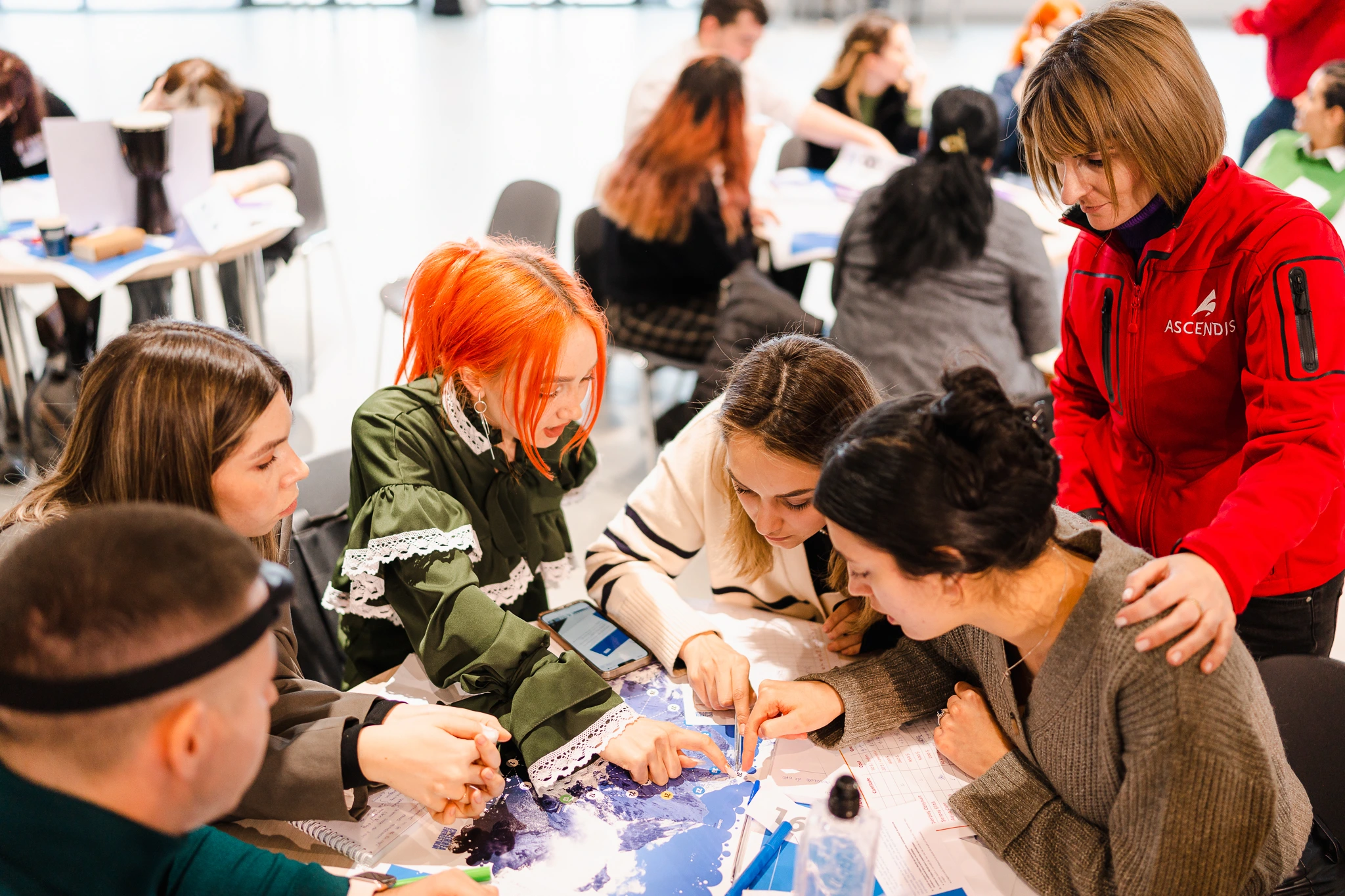
Currently, more than half of the world’s population lives in cities, and by 2050 this will have increased to two-thirds. At the same time, city populations are becoming increasingly youthful as according to UN-Habitat, 60% of urban populations will be under the age of 18 by 2030.

However, despite their increasing popularity, most of the world’s urban development fails to address the problems caused by inadequate infrastructure, urban poverty and social inclusion, creating environments that do not meet the needs of millions of young people.
That is why focusing on urban development with youth in mind is vital.
Young cities
While young people around the world flock to cities, it is important to engage them as drivers of cities’ development by supporting their innovative ideas and initiatives. Young people’s active involvement is key to the successful, sustainable and inclusive transformation of cities.
I am lucky to be involved with OurCity, an initiative aimed at improving young people’s well-being that works with and for young people in cities. Launched in 2018 by Fondation Botnar, a Swiss philanthropic organisation, OurCity supports cities in their transformation into youth-centred places, by enabling young people to take part in city design and governance and providing space for them to thrive.
Initially launched in 2018 in Tanga, Tanzania, the initiative expanded to my home city of Cluj-Napoca, Romania, in 2020. These two programmes generate evidence for the systemic change OurCity aims to achieve and by doing so, support the learning agenda of the OurCity network, other Fondation Botnar programmes, as well as other philanthropic organisations.
Already seeing change
In several cities in Romania, various structural environmental, social and governance challenges persist but I am thrilled to be part of this vital initiative that is providing a platform for this much-needed change driven by the youth’s innovative ideas.
In the city of Cluj-Napoca, OurCluj is working with the municipality, young people and key stakeholders to strengthen the ecosystem that supports youth and address central issues that are important to young people such as the inequalities in developments in the areas of education, health or well-being.
Through OurCluj, young people have been given a space for collaboration and co-creation, which has already made a big impact across the city. For example, the programme has encouraged youth involvement in the arts and comics, established a local STEM training platform, developed networks among schools, and created FIX-Cluj, a social innovation incubator aimed at empowering young people.
A city in action
As I joined Fondation Botnar’s Young Professionals Programme, I had the opportunity to visit Cluj-Napoca last month to see OurCluj in action.
As part of FIX-Cluj, we heard from young people about social innovations that can solve community issues and make their city more youth-friendly. The launch ceremony welcomed 40 teams of two to five young people bringing various innovations, in line with diverse socio-economic and environmental issues they aim to meet.
I was able to talk with various stakeholders involved in the initiative such as the young people applying to participate in the initiative, mentors and jury members. When asked why the teams applied, they referred to the benefits FIX offers through mentorship, education and a more flexible form of financial support that allows for veritable experimentation of ideas.
It was great to hear directly from the young people and understand their vision of a better future.
Problems to which the innovations of young people answered were varied, with a few of them targeting climate issues, some focused on health and mental health, but also aiding accessibility and community.
One team I spoke with was looking to solve the issue of sedentary lifestyles by creating an app to remind you to take breaks and to offer targeted movements based on the individual’s profile. Another team was trying to make visiting new places more accessible for people with hearing impairments by adding QR signs in tourist areas.
Their diverse experiences and backgrounds are crucial to advance innovative solutions to solve urban challenges, and I look forward to seeing how the OurCity initiative can further facilitate young people in making a positive contribution towards their communities’ well-being.
This initiative provides an important example of how youth can be part of the development process and how innovative ideas can come from young people living in cities to overcome the challenges they face.
Including young people in decision-making is crucial to transforming cities, bringing fresh perspectives, fostering empowerment, and encouraging generational dialogue. Their participation and ideas are invaluable and vital to the development of sustainable and inclusive cities.
[Read more: How young people can influence the future of their cities]






